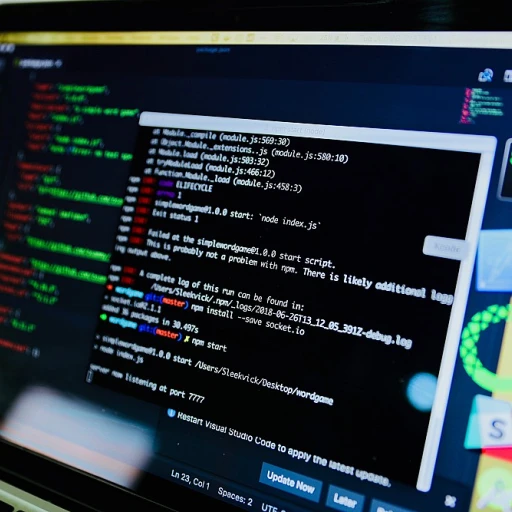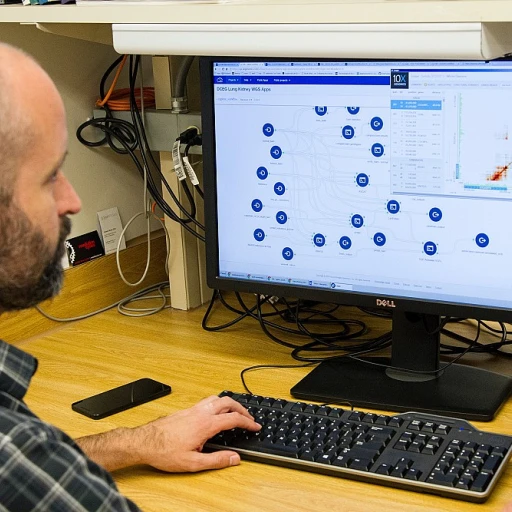
Understanding Time as a Resource
Time as a Strategic Asset in Software Development
In the realm of software development, time is not just a ticking clock but a strategic asset that can significantly influence the success of a project. Understanding time as a resource is crucial for project managers who aim to optimize resource utilization and ensure project success. The effective management of time resources can lead to improved project outcomes, reduced costs, and enhanced team dynamics.
Time management in software projects involves more than just tracking hours. It requires a comprehensive approach that includes planning, estimation, and the use of management software to track time effectively. Project managers must develop a plan that allocates time resources efficiently, ensuring that each team member can contribute to their fullest potential without burnout.
Resource management is another critical aspect of understanding time as a resource. By accurately estimating the time required for various tasks, project managers can allocate resources more effectively, ensuring that the project remains on schedule and within budget. This involves using data-driven methods to create realistic time estimates and continuously adjusting the plan as the project progresses.
Moreover, the ability to track time in real time allows project managers to make informed decisions about resource capacity and utilization. This real-time tracking helps in identifying potential bottlenecks and reallocating resources as needed to maintain project momentum.
For those interested in exploring the broader implications of time management in software development, understanding the evolving landscape of software development terms and conditions can provide valuable insights into how time is perceived and managed in different contexts. For more information, you can explore the evolving landscape of software development terms and conditions.
Time Management Techniques in Software Projects
Effective Strategies for Managing Project Time
In the realm of software development, time is an invaluable resource that requires meticulous management to ensure project success. Project managers often grapple with the challenge of balancing time with other critical resources, such as budget and manpower. To navigate this complex landscape, several time management techniques have proven effective.
Prioritizing Tasks and Setting Clear Milestones
One of the foundational methods in time management is the prioritization of tasks. By identifying critical tasks and setting clear milestones, project managers can allocate time resources more efficiently. This approach not only helps in tracking progress but also in adjusting plans as needed to meet project goals.
Utilizing Time Tracking Tools
Time tracking tools have become indispensable in modern project management. These tools provide real-time data on how team members are spending their hours, enabling better resource utilization. By analyzing this data, project managers can make informed decisions to optimize time spent on various tasks.
Implementing Agile Methodologies
Agile methodologies, such as Scrum and Kanban, emphasize iterative development and continuous feedback. This approach allows teams to adapt quickly to changes, ensuring that time is spent effectively on tasks that align with project objectives. Agile practices also foster better communication among team members, enhancing overall project time management.
Estimating Time Accurately
Accurate time estimation is crucial for effective project planning. By leveraging historical data and employing estimation techniques, project managers can create realistic timelines that account for potential delays and unforeseen challenges. This proactive approach minimizes the risk of project overruns and ensures that time is used judiciously.
For a deeper understanding of how these strategies fit into the broader context of software development, you can explore the evolving landscape of software development terms and conditions.
Balancing Time and Innovation
Striking the Right Balance Between Time and Innovation
In the realm of software development, balancing time and innovation is a critical challenge that project managers face. The need to deliver projects on time often clashes with the desire to innovate and create cutting-edge solutions. This tension requires a nuanced approach to optimizing service management and leveraging time as a strategic resource.
To effectively manage this balance, project managers must employ a variety of time management techniques. These include:
- Prioritizing Tasks: Identifying which tasks are essential for project success and which can be adjusted or delayed without compromising the overall quality.
- Resource Allocation: Ensuring that the right team members are assigned to tasks that align with their strengths and expertise, maximizing resource utilization.
- Time Tracking Tools: Utilizing software tools to track time spent on tasks, allowing for better estimation and planning.
Innovation should not be stifled by rigid timelines. Instead, project managers can foster a culture where creativity is encouraged within the framework of effective time management. This involves setting realistic time estimates and allowing flexibility for team members to explore innovative solutions.
Moreover, understanding the impact of time on team dynamics is crucial. When team members feel rushed, it can lead to stress and reduced productivity. Conversely, a well-managed timeline can enhance collaboration and creativity, contributing to project success.
Ultimately, the goal is to create a project environment where time is not just a constraint but a resource that, when managed effectively, can drive both efficiency and innovation.
The Impact of Time on Team Dynamics
Team Dynamics and Time as a Resource
In the realm of software development, time is not just a ticking clock but a vital resource that influences team dynamics significantly. The way a project manager allocates time resources can make or break a project's success. Effective resource management ensures that team members are not only meeting deadlines but also maintaining a healthy work-life balance.
When time is managed well, it fosters a collaborative environment where team members can thrive. However, poor time management can lead to stress and burnout, affecting the overall morale and productivity of the team. This is why project managers must employ effective time tracking tools and methods to keep track of time spent on various tasks. By doing so, they can ensure that the workload is evenly distributed among team members, preventing any one individual from being overwhelmed.
Moreover, accurate time estimates are crucial for planning and resource utilization. When teams have a clear understanding of the time required for each task, they can plan their work more effectively, leading to better project outcomes. This also helps in managing billable hours efficiently, ensuring that the project stays within budget and on schedule.
Real-time data on time tracking can provide insights into how team members are utilizing their time, allowing for adjustments in resource allocation as needed. This proactive approach to time management will help in maintaining a balanced and productive team dynamic, ultimately contributing to the project's success.
Technological Advancements and Time Efficiency
Technological Innovations Enhancing Time Efficiency
In the realm of software development, technological advancements have significantly transformed how time is managed as a crucial resource. With the integration of sophisticated project management tools, teams can now track time more effectively, ensuring that every hour spent contributes to project success. These tools offer real-time data, enabling project managers to make informed decisions about resource utilization and task prioritization.
One of the key benefits of these advancements is the ability to provide accurate time estimates. By leveraging data-driven insights, project managers can plan and allocate resources more efficiently, reducing the risk of cost overruns and missed deadlines. This method of estimation not only enhances project planning but also fosters a culture of accountability among team members.
Moreover, the use of automated time tracking systems has streamlined the process of monitoring billable hours and resource capacity. These systems allow teams to track time spent on various tasks, providing valuable insights into how resources are being utilized. This level of transparency helps in identifying potential bottlenecks and optimizing team dynamics, ultimately leading to improved project outcomes.
As technology continues to evolve, the future of time management in software projects looks promising. Emerging tools and methodologies will help teams adapt to changing demands, ensuring that time remains a pivotal resource in driving innovation and achieving project goals.
Future Trends in Time Management for Software Projects
Emerging Trends in Time Management for Software Projects
As the software industry continues to evolve, so too do the methods and tools used for managing time as a critical resource. The future of time management in software projects will likely be shaped by several key trends that aim to enhance efficiency and project success.
- AI and Machine Learning: Artificial intelligence and machine learning are set to revolutionize time management by providing predictive analytics for project timelines. These technologies can analyze historical data to offer more accurate time estimates and resource allocation, reducing the risk of project overruns.
- Real-Time Collaboration Tools: The rise of real-time collaboration tools will help teams manage time more effectively by enabling seamless communication and coordination. These tools facilitate instant feedback and adjustments, ensuring that team members are aligned and tasks are completed on schedule.
- Advanced Time Tracking Software: Future advancements in time tracking software will offer more granular insights into how time is spent across various tasks and projects. This will help project managers optimize resource utilization and improve overall project management strategies.
- Integration of Agile and DevOps Practices: The integration of Agile and DevOps practices will continue to influence time management by promoting iterative development and continuous delivery. These methodologies encourage flexibility and adaptability, allowing teams to respond quickly to changes without compromising on time efficiency.
- Remote Work and Distributed Teams: As remote work becomes more prevalent, managing time across distributed teams will be crucial. Tools that support asynchronous communication and time zone management will be essential for maintaining productivity and ensuring that all team members are effectively contributing to project goals.
By embracing these trends, software development teams can enhance their time management capabilities, leading to more successful project outcomes. As technology continues to advance, staying informed and adaptable will be key to leveraging time as a valuable resource in software projects.















